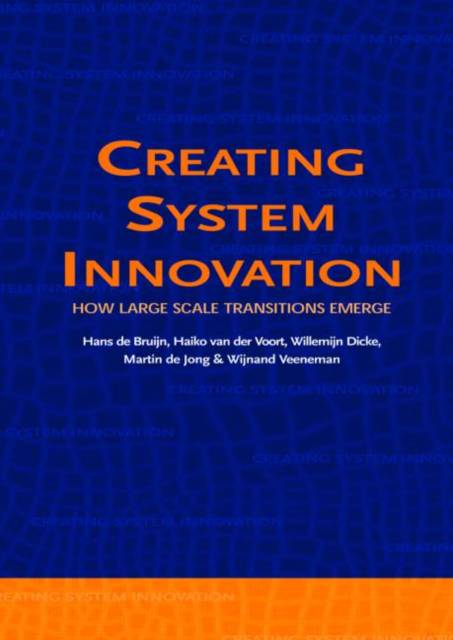
- Afhalen na 1 uur in een winkel met voorraad
- Gratis thuislevering in België vanaf € 30
- Ruim aanbod met 7 miljoen producten
- Afhalen na 1 uur in een winkel met voorraad
- Gratis thuislevering in België vanaf € 30
- Ruim aanbod met 7 miljoen producten
Zoeken
Creating System Innovation
How Large Scale Transitions Emerge
H De Bruijn, H Van Der Voort, W Dicke, M de Jong, W Veeneman
Hardcover | Engels
€ 121,45
+ 242 punten
Omschrijving
'System innovation' is a radical change of institutions, structures and values concerning one or more entire sectors. This publication from the Consultative Committee of Sectorcouncils for Research and Development in the Netherlands draws conclusions about the possible role of governments when 'system innovation' is predominantly emergent, questioning the popular idea of proactive governments in realizing system innovations. The main conclusion drawn is that highly process-oriented governments should focus on creating favourable conditions for system innovations instead of concentrating on content areas where these innovations might take place. Three examples of realized 'system innovations' are examined: - The privatization of British Rail, - The explosive development of a biotech- industry around Boston (USA), and - The realization of the Comprehensive Everglades Restoration Program (South Florida, USA). It emerges from these case studies that many themes arise consistently, including the role of knowledge, the way initiators deal with social resistance and the role of public- private interaction. The authors show that even seemingly well designed 'system innovations' contain many emergent elements and often lead to unforeseeable and unmanageable dynamics.
Specificaties
Betrokkenen
- Auteur(s):
- Uitgeverij:
Inhoud
- Aantal bladzijden:
- 102
- Taal:
- Engels
Eigenschappen
- Productcode (EAN):
- 9789058096722
- Verschijningsdatum:
- 15/04/2004
- Uitvoering:
- Hardcover
- Formaat:
- Genaaid
- Afmetingen:
- 178 mm x 254 mm
- Gewicht:
- 403 g

Alleen bij Standaard Boekhandel
+ 242 punten op je klantenkaart van Standaard Boekhandel
Beoordelingen
We publiceren alleen reviews die voldoen aan de voorwaarden voor reviews. Bekijk onze voorwaarden voor reviews.











